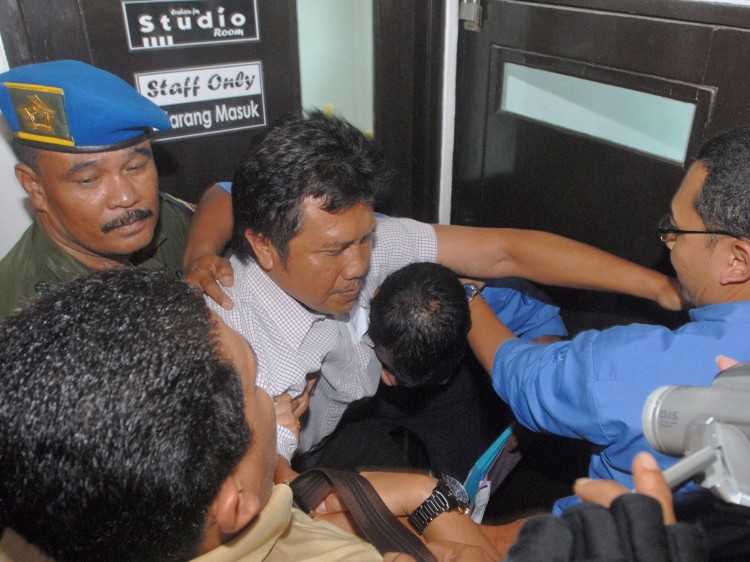Indonesian Radio Station Pitches in for Complex Battle
Under pressure from the Chinese regime, the Indonesian government has suppressed Era Baru, which the station has fought back against, most recently winning a Supreme Court case.

Gatot Machali tries to stop Indonesian authorities from raiding Radio Era Baru's studio and confiscating equipment in 2010. Under pressure from the Chinese regime, the Indonesian government has suppressed Era Baru, which the station has fought back against, most recently winning a Supreme Court case. Radio Era Baru
|Updated:
Matthew Robertson is the former China news editor for The Epoch Times. He was previously a reporter for the newspaper in Washington, D.C. In 2013 he was awarded the Society of Professional Journalists’ Sigma Delta Chi award for coverage of the Chinese regime's forced organ harvesting of prisoners of conscience.
Author’s Selected Articles






